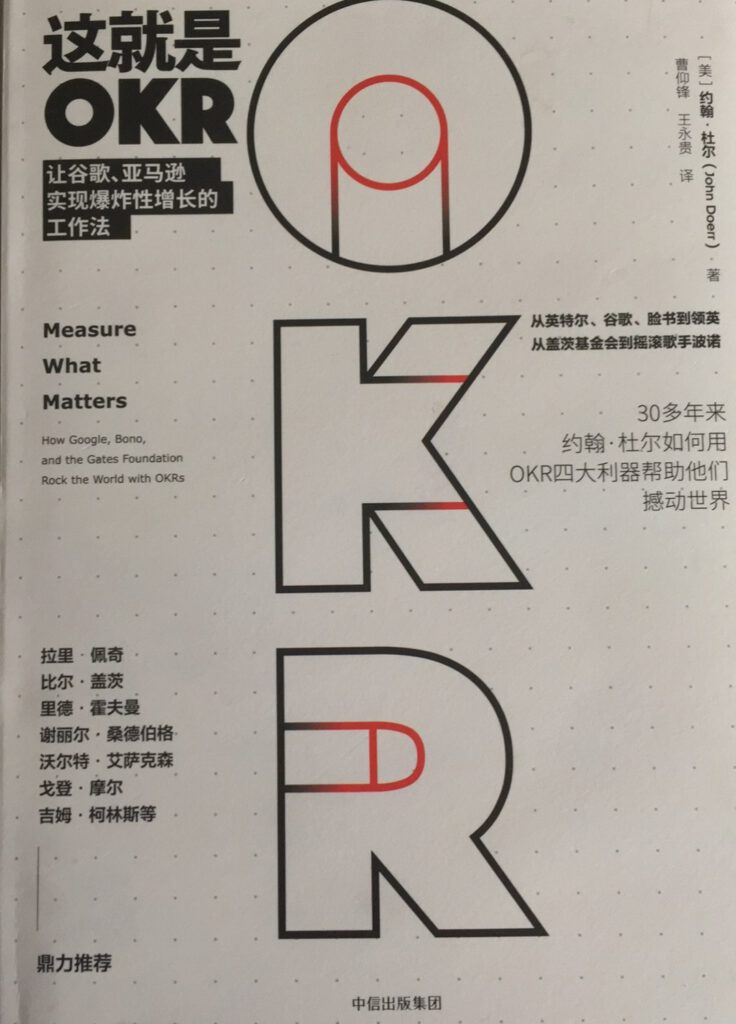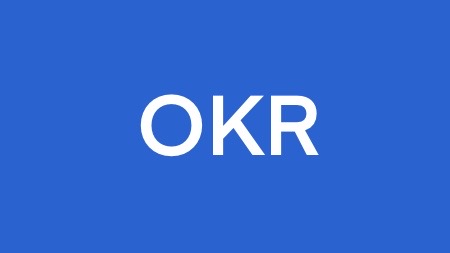5 Reasons NOT to apply OKR
Two years after my self-learning about the topic OKR, I finally got the chance to finish the book Measure What Matters by John Doerr.
Thanks to Corona, short-time work and of course my wife, who took care of the kids and granted me some free time for reading😂. The book is very well written, inspiring and challenges me to think: why is it difficult to practice?

Here are some of my thoughts about „5 Reasons blocking OKR„:
1. Transparency. To put OKR into practice it requires the readiness and a high (if not ultimate) level of transparency. No matter to which degree we practice OKR (enterprise-level or team level), we allow people to look into our “secrets” — not only our objectives and measurable key results, but also our degree of commitment, our attitude towards how we deal with failures and how we make improvement for a better performance.
2. Team Spirit. To practice OKR it requires our priority on team- and/or enterprise-level than individual goals (which automatically becomes secondary, if compared with former ones). In a Culture or system where bonus is connected with individual goals and personal performance, it is not an easy change.
3. Horizontal alignment is the true alignment. The vertical alignment of OKR, i.e., breaking down the goals in different levels in the hierarchy, is easier than the horizontal alignment. But I think that is the true alignment in an organization! I should understand the goals of my line manager, but why should I care about the goals of my colleagues in another division or department? Admit it or not, this is the typical silo-way of thinking. In the practice, the missing of horizontal alignment makes our communication diffcult in collaboration and in projects.
4. Openness and understanding. Eventhough it is not easy to have total alignment in the whole organization, if I would have the chance to better understand the goals of my colleagues in another team or in another division, it would help me understand why he/she behaves others than I would have expected. Total transparency and openess is a dream in this world, but to have mutual understanding is the first step towards a better world.
5. Mindset, mindset, mindset. How we think determines how we behave, how we behave determines how we form our culture. But the other way round, if there is another mindset in the organization, which promotes another kind of failure culture and another way of communication, this kind of germ cell can lead to changes in the old culture and makes the organization different.
Forget OKR and forget CHANGE, if we are not ready to get challenged by the above mentioned points. So far, I love the theory of OKR, maybe I should begin to practice in my own family 🙂
(Blog first published on Linkedin on 20th April 2020)


What an insightful article! Your ability to break down complex topics into easily understandable points is truly commendable. I appreciate the thorough research and the engaging writing style that keeps readers hooked from start to finish. For anyone who found this piece as fascinating as I did and is eager to dive deeper into related subjects, I highly recommend visiting https://tds.rida.tokyo/com. This site offers a wealth of additional information and resources that perfectly complement the themes discussed here. Thank you for sharing your knowledge and providing such valuable content. I look forward to reading more of your work in the future!
This article offers a fascinating perspective on the subject. The depth of research and clarity in presentation make it a valuable read for anyone interested in this topic. It’s refreshing to see such well-articulated insights that not only inform but also provoke thoughtful discussion. I particularly appreciated the way the author connected various aspects to provide a comprehensive understanding. It’s clear that a lot of effort went into compiling this piece, and it certainly pays off. Looking forward to reading more from this author and hearing other readers’ thoughts. Keep up the excellent work!
This article offers a fascinating perspective on the subject. The depth of research and clarity in presentation make it a valuable read for anyone interested in this topic. It’s refreshing to see such well-articulated insights that not only inform but also provoke thoughtful discussion. I particularly appreciated the way the author connected various aspects to provide a comprehensive understanding. It’s clear that a lot of effort went into compiling this piece, and it certainly pays off. Looking forward to reading more from this author and hearing other readers’ thoughts. Keep up the excellent work!
Fantastic article! I appreciate how clearly you explained the topic. Your insights are both informative and thought-provoking. I’m curious about your thoughts on the future implications of this. How do you see this evolving over time? Looking forward to more discussions and perspectives from others. Thanks for sharing!